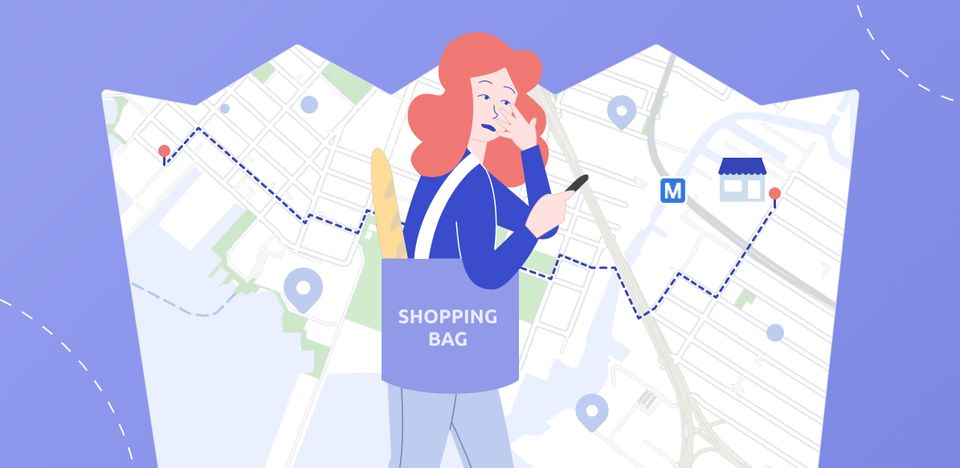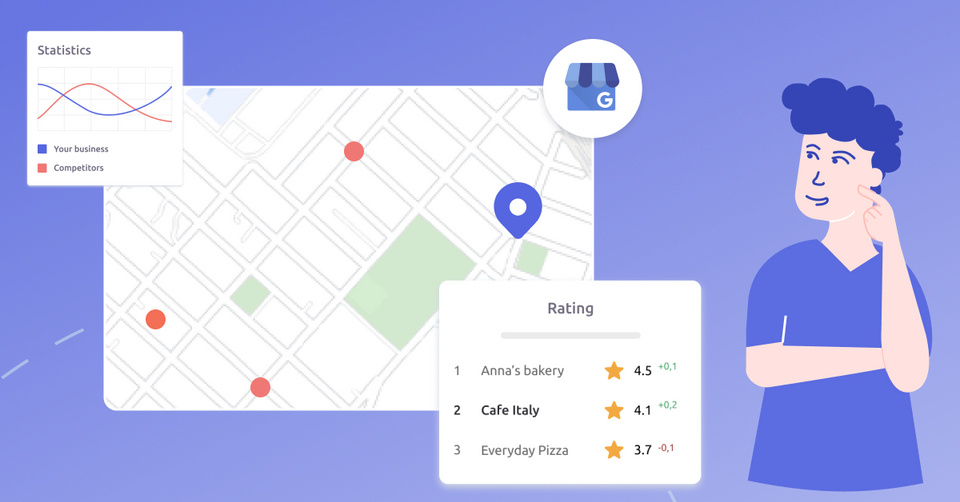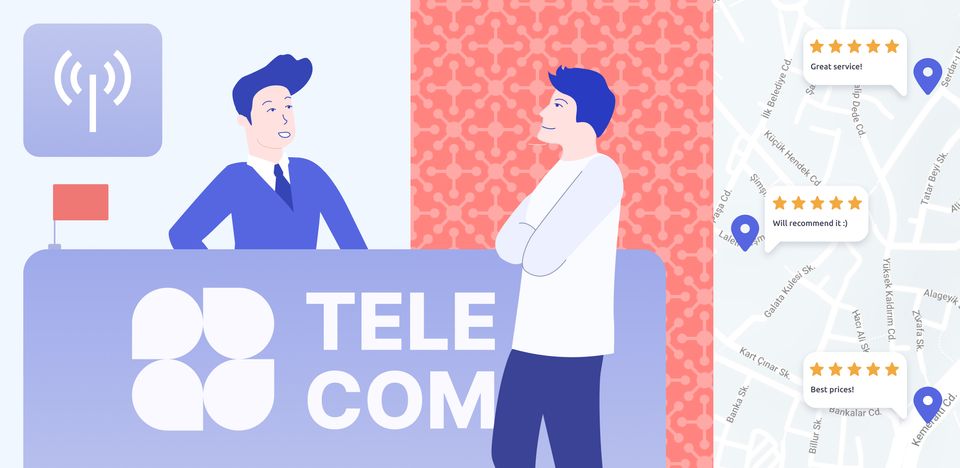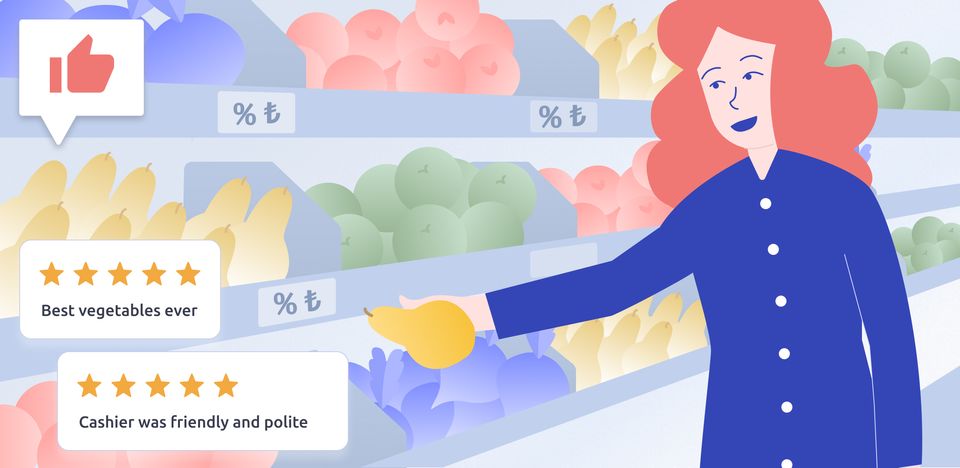Intro
We continue our GCC research of multi-location businesses. Last time we wrote about banks, and if you’re curious about that definitely go and check our article. In this study, we would like to focus on retail. Retail is a dynamic and highly competitive industry where businesses must constantly adapt to shifting consumer expectations, digital advancements, and local market conditions. The Gulf Cooperation Council countries, such as Bahrain, Kuwait, Oman, Qatar, Saudi Arabia, and the United Arab Emirates, are no exception. There are a few facts to prove it:
- This industry will continue to show growth tendencies according to Alpen Capital. The retail industry is forecasted to grow at a pace of 5.7% CAGR between 2022 and 2026 to reach US$ 370.0 billion
- Non-food retail sales are forecasted to grow at a CAGR of 6.2% while food retail sales are anticipated to increase at a CAGR of 4.9% between 2022 and 2026.
- Special attention to luxury retail. 70% of consumers in the Middle East claim to have increased their spending on luxury goods compared to 53% in more mature markets.
To stay competitive, retailers must adapt to these shifting trends. For multi-location businesses, leveraging online maps and review services, essential channels for growth and customer engagement, is no longer optional. A few key facts to highlight that:
- Sebastian Buss, Chief Marketing Officer at the Statista-operated database EcommerceDB, states that: “Consumers in the Middle East, roughly 50%, like to touch things before buying them, which hinders e-commerce on the one hand, and promotes malls on the other.”
- It’s not just GCC citizens who continue to make in-store purchases – tourists do too. Dubai's strategic initiatives and government support have positioned it as a key driver of the retail industry's expansion, and its status as a global retail hub for shoppers is expected to solidify further, attracting tourists and investors from around the world.
- According to Newmetrics, retailers heavily invest in omnichannel. As customers engage with brands across various digital and physical touchpoints, the need for a seamless and consistent omnichannel experience has never been greater.
Therefore, to maintain accurate store listings on Google Maps, manage customer feedback on review platforms, and optimize local search visibility, retailers must adopt a strategic approach to digital location management. However, it’s important to separate food and non-food retail as they might need to tackle different issues despite having the same objectives.
Food retailers like grocery stores, quick-service restaurants, and cafes face unique challenges, including health regulations, fluctuating inventory, and real-time demand. On the other hand, Non-Food retailers, like fashion stores, electronics shops, and home goods brands, focus more on long-term inventory, seasonal trends, and customer service experiences. Because of these key differences, separate research would provide more targeted insights, helping each type of retailer refine its online presence and maximize the impact of maps and review services.
With that being said, let’s start with the analysis of the Non-Food Retail digital presence on Google Maps, as Google is responsible for 96% of online traffic in GCC.
Which Non-Food Retail are going to be analyzed?
Our research examines the online presence of 22 retailers across six GCC countries, analyzing a comprehensive dataset of 2 888 Google Maps locations, 920 044 reviews, and 276 521 photos. We focused on the largest GCC retailers by location count, as their extensive store networks provide valuable insights into regional trends while ensuring balanced representation across all GCC countries.
- Among brands that participated in our research are: Savola Group, SASCO, Jarir Bookstore, Extra Stores, Al-Hokair Group, ADNOC, The Chalhoub Group, Al Futtaim Retail, Al Tayer Group, ENOC, Emarat, Apparel Group, Landmark Group, Al Shamsi, Azadea Group, Rivoli, BMA International Group (BMA), Woqod, Al Shaya Group and KNPC, Bapco, and OOMCO
Google Maps presence for GCC retailers has significant room for improvement, with 27% of the analyzed companies missing essential business information. This was determined by assessing data completeness across key fields such as address, coordinates, phone number, category, photos, website, description, and attributes. Additionally, many retailers are not actively managing reviews and have numerous unclaimed profiles.
From a total of 2 888 Google Maps locations 772 or 27%, are not directly managed by the brand. This lack of direct management may lead to negative consequences, such as clients arriving to incorrect locations at incorrect times.
The average data completeness is 73%, with many retailers missing critical details. For instance, 976 locations (33.8%) lack website information, and 679 locations (23.5%) are missing telephone numbers. This highlights the earlier finding that numerous physical locations are not directly managed by the brand, which can lead to potential customers visiting businesses during incorrect hours or at the wrong addresses, resulting in frustration. Furthermore, many locations are also missing key business attributes and descriptions.
The average rating across analyzed locations is 4.0, based on 920 044 reviews, which is relatively good. However, 1 044 locations (36.1%) still have ratings between 1.0 and 3.9. Additionally, 188 locations (6.5%) lack ratings altogether, indicating low customer engagement and potentially harming their online reputation. For those in local SEO, we recommend prioritizing these locations, as improvements here can lead to quick results and significantly enhance the company's search engine visibility. Even a small rating boost of 0.1 can increase conversions by 25%. For tips on how to achieve this, check out one of our recommended articles.
Across the locations mentioned, we identified 276 521 photos, reflecting strong social engagement. However, many of these photos were irrelevant, and we strongly advise companies to focus more on this area. Notably, 895 locations (30.1%) have fewer than three photos, which can reduce customer engagement since locations with updated and relevant photos and videos are viewed 15% more often. To improve their online presence, companies should prioritize uploading relevant photos and flagging irrelevant ones for removal.
GCC Local Search Trends for Non-Food Retail
Through a thorough analysis of the statistics mentioned above, we were able to identify local search trends for each GCC country analyzed, including Bahrain, Kuwait, Oman, Qatar, Saudi Arabia, and the United Arab Emirates. These metrics were consolidated into the Geojet Performance Index, which you can check on the map below.
This percentage for Geojet Performance Index was counted by measuring 7 metrics, such as:
- Verified locations
- Data completeness
- Ratings
- Reviews
- Photos
- Amount of locations
- Population
By focusing on the first 5 metrics, retailers can significantly improve their Performance Index. Let me explain why these metrics are crucial and how to enhance them.
- Verified locations are essential for building trust and credibility. Verification ensures customers that the information is accurate and that the business is legitimate. Given its strong influence on customer trust and decision-making, this metric carries the highest weight.
- Having complete information about each location is vital for customers to make informed choices. Incomplete profiles can create confusion and erode trust. As a result, ensuring data completeness is also given a high weight to reflect its importance.
- Ratings by customers serve as a direct reflection of their experiences and satisfaction. High ratings are vital for establishing a positive reputation and attracting new customers. While businesses can't directly control their ratings, it’s an important metric to monitor
- Reviews can reflect customer engagement and offer valuable feedback. However, it’s the quality of the reviews that has a greater impact. As a result, reviews were assigned a moderate weight, recognizing their significance without overemphasizing them. However, that’s important to note that work with review is extremely important and might influence rating
- Photos assist customers in visualizing retailer's facilities and services, playing a key role in their decision-making process. While they are important, they are just one element of the overall picture. As such, photos were given moderate weight to balance their visual impact with other informational metrics. Nevertheless, businesses should still upload relevant photos to create a more complete and engaging customer experience.
- Amount of locations is a less impactful metric.While retailers should ensure all their physical locations are listed on online maps, once this is done, the focus should shift to providing accurate information for each location and managing reviews.
- Population is the least impactful metric. The population metric, which a retail company cannot directly influence, mainly serves to provide context and help balance data analysis between countries with large population disparities, such as Saudi Arabia and the UAE. As such, these metrics are best viewed as complementary.
Conclusion
Understanding the online presence of the GCC’s retail sector is a complex task. This study identified key challenges by analyzing the Non-Food Retail presence on Google Maps through various metrics. With insights from the Performance Index, GCC retailers now have a clear roadmap to significantly improve their performance on Google Maps. 6 out of 7 metrics can be easily managed through the Geojet dashboard.
While our analysis primarily focused on Google Maps, GCC retailers should also consider platforms like Bing Maps and Yango Maps. Special attention should be given to Yango Maps, as, despite Yandex being the third-largest search engine, the company is making substantial investments in the region with Yango Maps.
When managed effectively, online maps can be a powerful tool for attracting a growing customer base and addressing potential issues. Conversely, poor management of online maps and review services can pose significant risks to a brand’s reputation, as demonstrated in this study.
In this study, we covered Non-Food retailers and the research with a focus on Food retailers is coming. If you would like to see the same results for your business let us know at [email protected] or contact us in a chat.





